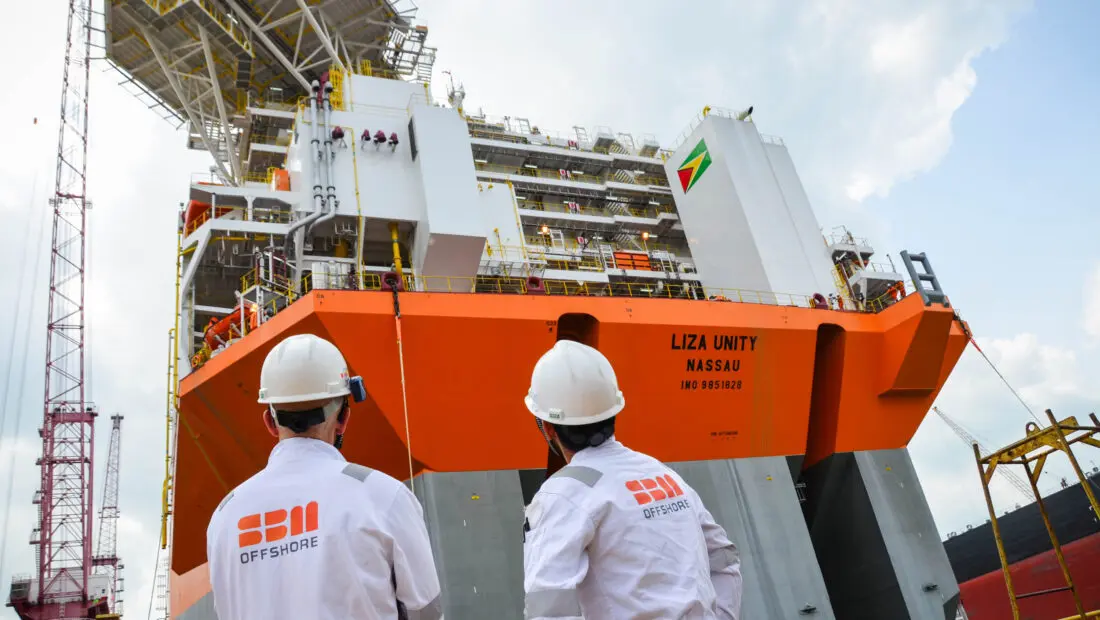SBM Offshore has expanded its fleet to 17 floating production, storage and offloading (FPSO) units, achieving a total production capacity of 2.7 million barrels per day. This was confirmed in the company’s 2025 half year report released this week.
The increase comes with the addition of two large FPSOs deployed in Brazil during the first half of the year, which together have a combined production capacity of 405,000 barrels per day.
The ONE GUYANA FPSO, SBM’s largest producing unit in the country to date, is now on charter as of August 4, with a nameplate capacity of 250,000 barrels per day.
SBM Offshore gets O&M contract for first Suriname FPSO | OilNOW
SBM Offshore said the expanded fleet, “Brings experience, learnings and data which allow us to continuously refine our lifecycle value proposition and deliver enhanced value to our clients by derisking project execution, accelerating time to reach full operational capacity and improving uptime.”
The two recently delivered FPSOs in Brazil achieved flare-out in an average of less than 45 days, which the company described as “industry-leading”. Fleet-wide uptime across the first six months of 2025 averaged 99.4%.
Construction is ongoing for Jaguar FPSO, GranMorgu FPSO, and Trion FSO, with SBM noting that progress is on track.
In June, the company signed a two-year operations and maintenance agreement with TotalEnergies for FPSO GranMorgu, positioning SBM Offshore to become “the first FPSO operator in Suriname”.
SBM Offshore targets GHG neutrality by 2025, advances emissions tools in Guyana | OilNOW
SBM said the global deepwater market outlook “remains robust,” supported by demand for “cost-efficient and low-emission oil production”. Two new hulls are also under construction to support ongoing tendering efforts.
“We remain disciplined in selecting prospects where we can generate most value to enhance our portfolio,” the company added.
SBM Offshore said it is on track to return at least US$1.7 billion to shareholders between 2025 and 2030, noting that upside potential exists from the current backlog and new project awards.



